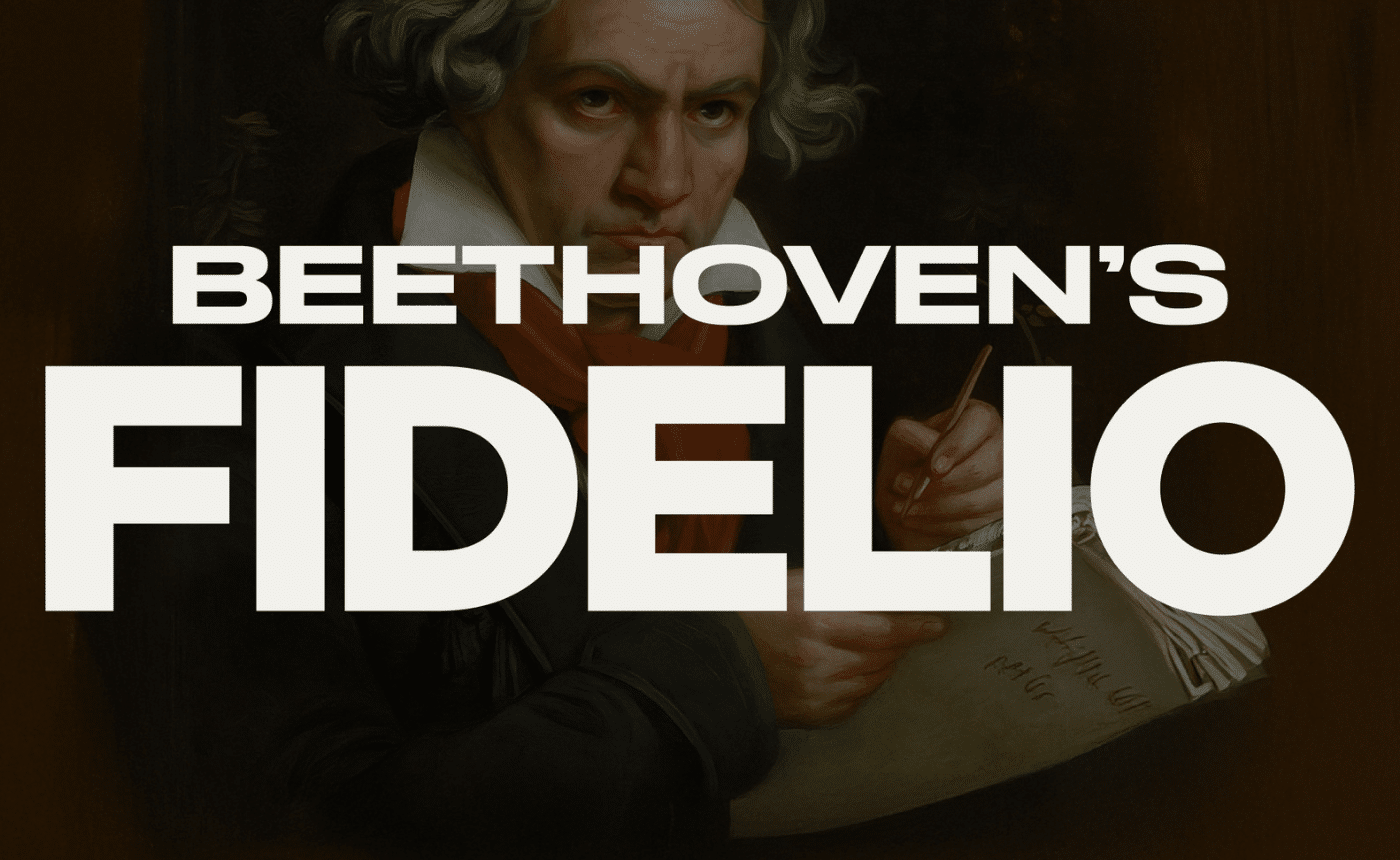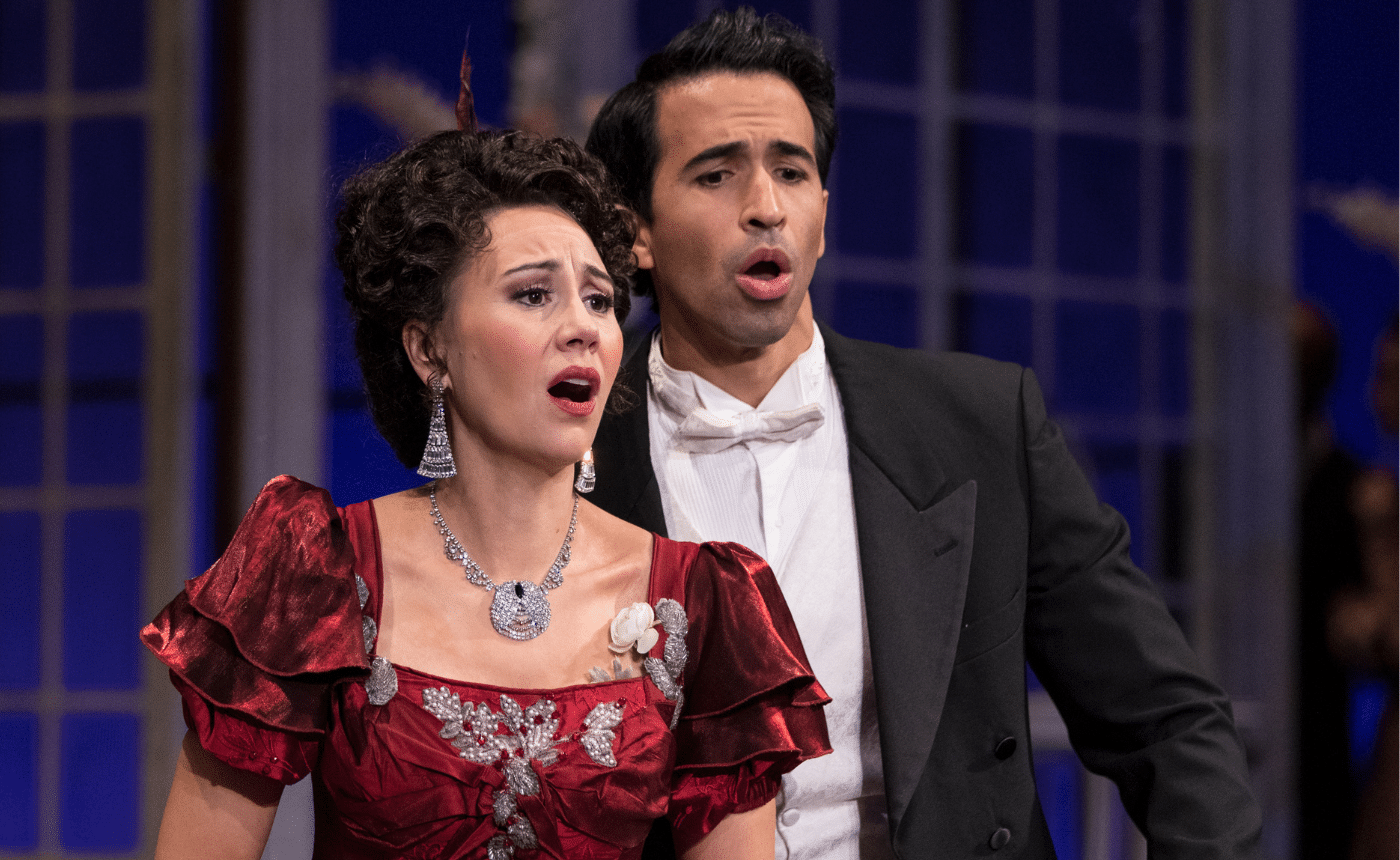Verdi and the Cult of 19th Century Personality
FAIR WARNING TO PURISTS: POTENTIALLY OFFENSIVE COMPARISONS TO FOLLOW.
If Franz Liszt was the 19th century Elvis, then Giuseppe Verdi was their Andrew Lloyd Webber (see above). The stories of Liszt’s rock star persona and swoon-inducing concerts are legion (and possibly a bit exaggerated, but let’s not fuss too much over that here). The ingrained image of such a dashing pianist performing before an adoring throng of mostly female audience members has been a potent spell, one upon which a career and an era was defined. Though not gifted with leading man looks or pyrotechnic instrumental skill, Verdi also enjoyed the manifold charms of this high-octane celebrity.
In truth, the European concert-going public of the mid-1800s seemed particularly predisposed to hysteria and rabid fandom. Liszt and other solo virtuosi made good use of this opportunity and cultivated a mythical atmosphere around nearly everything they did. It was no surprise that locks of Liszt’s hair became highly prized commodities but when they proved stubbornly difficult to obtain, discarded cigar butt lockets and vials of his unfinished coffee occasionally sufficed as rather odd yet duly fashionable shows of devotion. A certain suspension of physical reality was also common during this period. Artistic representations of Liszt, Paganini and others often included superhuman anatomical enhancements. Liszt was often drawn with inordinately long fingers and Sigismund Thalberg, a German contemporary, was once depicted in performance with eight hands (two of which are casually resting in his coat pockets, unneeded at that particular moment), each featuring more than the mortal allotment of digits.
How then does the comparatively glum and taciturn Giuseppe Verdi fit into such a fantastical environment? His proclivity for personal privacy is as well recorded as Liszt’s intentional magnetism but for Verdi, fame was equally available. Though he tried to keep his private life to himself, Verdi was not able to exist without the negative trappings of his notoriety. First among those unfortunate but necessary eventualities was “scandal,” a concept reserved solely for the famous. We normal folk never suffer such scrutiny but the composer of Nabucco and Rigoletto was a prime candidate for the star-crazed public. That’s the other edge of the fame sword. If only Verdi hadn’t obliged them with some truly scandal-worthy (at least for the time) behavior.
Verdi had been involved with the soprano Giuseppina Strepponi for a couple of years by the time of the Rigoletto premiere. Involved, in this case as in most, did not mean married and the fact that the two lived openly together did not escape notice or comment. At that point in his life, Verdi was uninterested in the ritual symbolism of marriage and disinclined toward religion as a whole. Again, everyday people are not often judged by their worldview but Verdi was of that more elevated sort and his implied agnosticism must have raised a few eyebrows. Strepponi herself was frustrated by Verdi’s spiritual indifference but saw no reason to demand adjustments to his thoroughly (if quietly) iconoclastic bent. Verdi was no rock star, but he did feel entitled to do as he pleased.
Il Trovatore would benefit greatly from this attitude. Verdi’s popularity had been steadily building since Nabucco and had become evergreen with Rigoletto. As the fully established “voice of his people,” he had the privilege of choosing the projects that most interested him, free of financial concern. In fact, Il Trovatore was not the result of a commission. It is hard to imagine a composer taking on something as resource-hungry as an opera without the security of a funder but Verdi knew well that his work could never want long for a home. So sure of this was he that he even chose the premiere company himself and based the decision on his impression that the Apollo Theatre in Rome had the best possible singers. It has often been said since that a successful production of Il Trovatore is possible only with the four greatest living Verdi singers. The composer certainly knew this while he was writing the music but, in another subtle acknowledgment of his status, he continued undaunted in the belief that his work would attract the best. Andrew Lloyd Webber probably had the same sense of calm after Cats (again, please see above).
The opera was a triumph of course. Over 200 productions were mounted in the three years that followed the premiere and it remains one of Verdi’s most performed today. It is a brilliant work on its own musical merits but it was popular in 1853 before anyone even heard a note, simply because the master penned it. Let us not forget that this was the man credited as a central figure in the fight for Italian statehood even though he always maintained a fairly passive role in that endeavor. This was the man who, though he was nothing more than a composer, was voted into the newly formed Italian Parliament. This was the man whose funeral procession numbered possibly in the hundreds of thousands even though most of his operas had temporarily fallen away.
Fact and legend blur for the men and women we place on pedestals and the fame does not always match the achievement. Verdi, thankfully, was not so careless with his good fortune. His gifts continue to outpace our appreciation of them and though modern scholars are attempting to re-write the dramatic political story of his life, their efforts will only increase the importance of his name as a virtuoso artist.





